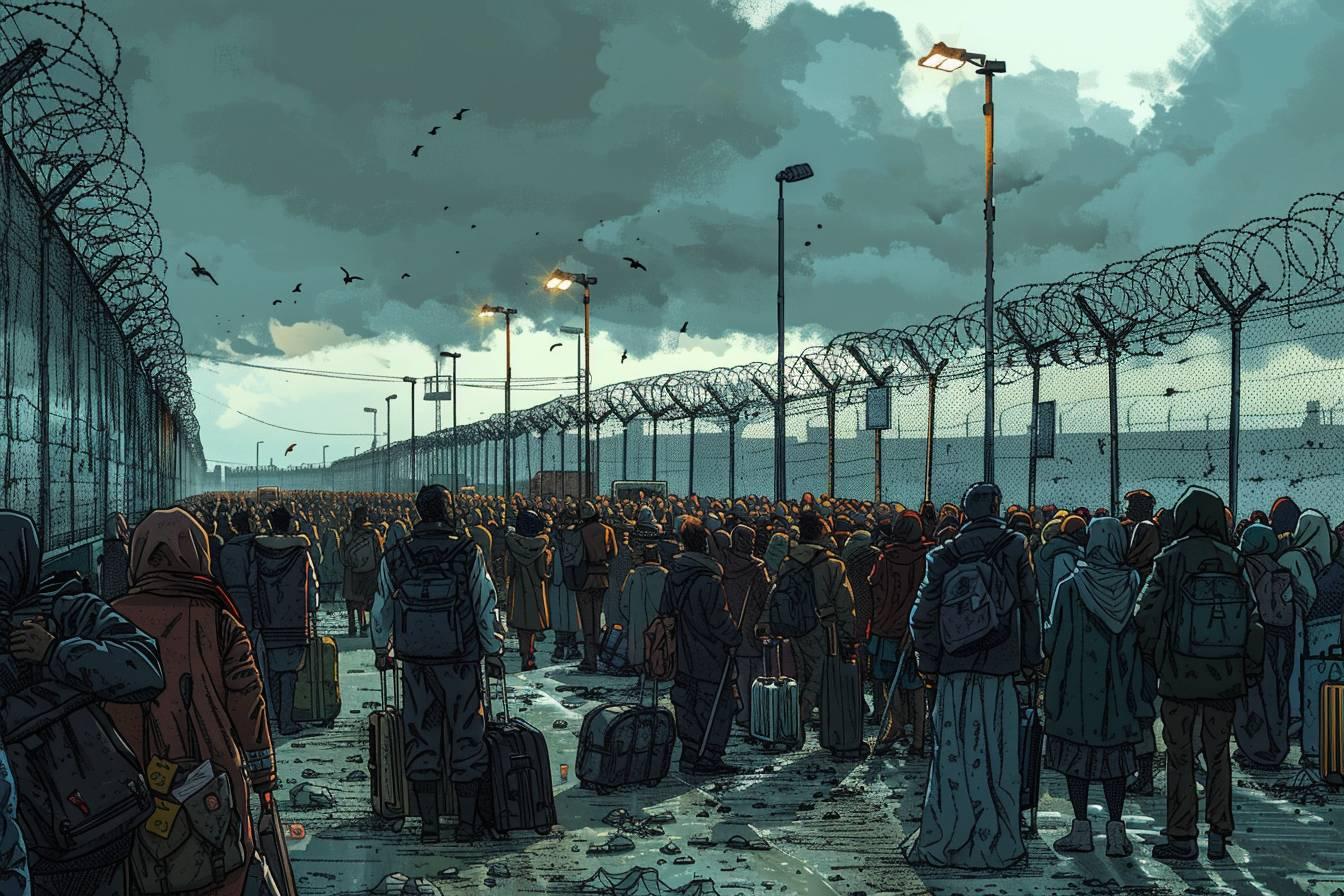|
IN SHORT
|
In 2024, the migratory landscape between France and the United Kingdom is facing an alarming turn, marked by a worrying increase in refusals of Europeans, with nearly 9,000 nationals being sent back at the borders during the year. While Brexit has already changed the rules of the game for travelers, the humanitarian repercussions of this situation are becoming increasingly apparent, revealing underlying social and political tensions. In this chaotic context, the struggle for mobility and respect for fundamental rights intensifies, raising critical questions about the future of relations between Europe and the United Kingdom.
In 2024, a concerning situation is unfolding at the borders of the United Kingdom: an increasing number of European nationals, including the French, are being turned away upon arrival. This significant rise in expulsions raises questions about the consequences of Brexit and how immigration policies are being enforced. As the United Kingdom strengthens its border controls, tensions between European and British nations are palpable, making passage for travelers increasingly complex.
An alarming rise in entry refusals #
The numbers speak for themselves: between January and October 2024, nearly 9,000 Europeans were turned away at the British border, a figure that represents a fourfold increase compared to previous years when there were barely 2,000 refusals over a similar period. This phenomenon affects not only migrants but also citizens of the European Union simply trying to visit the United Kingdom for various reasons, whether for tourism, family visits, or business.
These surprising expulsions testify to sometimes arbitrary decision-making by British authorities. Customs agents seem to be increasingly strict, interpreting immigration laws with a zeal that leaves many travelers in uncertainty. In particular, nearly 300 French nationals have also experienced this unpleasant situation during the year, further intensifying the sense of distrust and frustration.
The new travel rules and their implications #
As of October 1, 2021, the requirement for a passport for European citizens wishing to enter the United Kingdom has come into effect. Previously, an identity card sufficed, but this new rule complicates the procedures for many travelers. Although European nationals can still travel to London without a visa for stays of less than six months, this flexibility is undermined by the necessity to present a valid document that meets the requirements. Meanwhile, British citizens must deal with strict limits for their stays in Europe.
À lire exploration of the breathtaking landscapes of Conflent in the Eastern Pyrenees
A recent project to establish an Electronic Travel Authorization for visitors has been announced for March 2025. This system, inspired by the American Esta, will impose additional formalities for Europeans visiting the United Kingdom. The introduction of a £10 fee has been criticized by some as an additional barrier that could deter travelers. Furthermore, this authorization will only increase the complexity of travel between the EU and the United Kingdom, adding a layer of stress and uncertainty for future visitors.
A constantly evolving situation #
The rise in refusals highlights a tension that has been growing since Brexit. The migration agreements between the United Kingdom and the European Union struggle to provide an effective and fair framework for citizens on both sides of the Channel. The British government appears increasingly determined to enforce rigorous controls, which has dramatic consequences, not only for Europeans but also for Britons living abroad.
Indeed, as the number of refusals increases, there is a lingering fear that immigration policies may become more draconian, rendering the crossing of the Channel not only difficult but also perilous. Accounts from turned-away individuals reveal a troubling reality: separated families, aborted plans, and a sense of insecurity for citizens who, until recently, could travel freely.
The current challenges faced by the French and Europeans trying to reach the United Kingdom highlight the lasting impact of Brexit on European mobility. Aspirations for simple and hassle-free travel are also affected, as immigration policy hardens and European solidarity appears to be undermined by new restrictions. With the rise in refusals, reflection becomes necessary to find ways to restore constructive and humane dialogue between the United Kingdom and its European neighbors.


